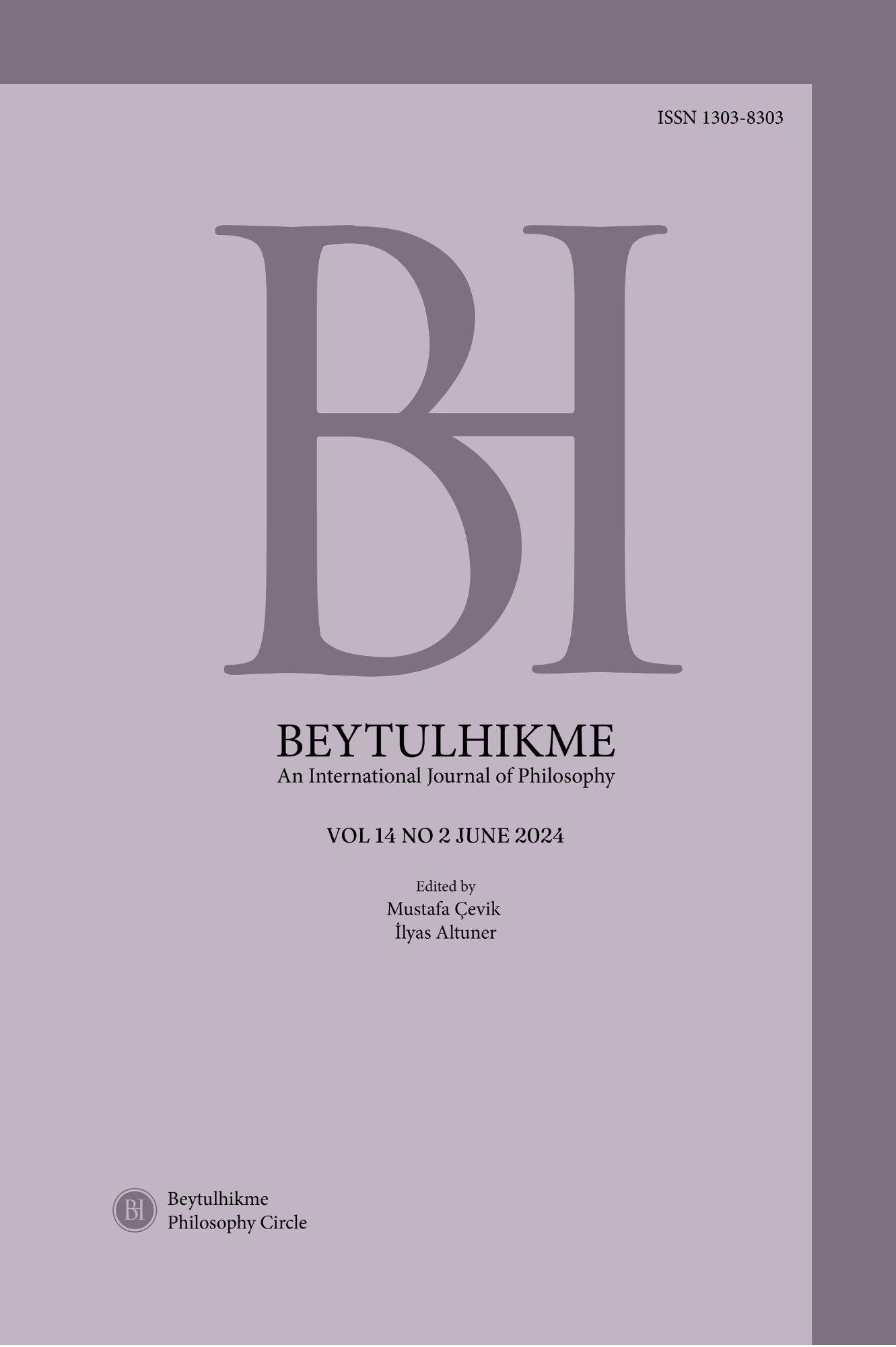Author :
Abstract
Bu makale, felsefi düşüncenin Kıraat İlmi üzerindeki etkisini, özellikle metodoloji, yorumlama ve analitik derinlik üzerindeki etkisine odaklanarak incelemektedir. Temel felsefi kavramların, özellikle ontoloji, epistemoloji ve aksiyolojinin, bu disiplindeki yorumlama kapasitesini büyük ölçüde artırdığını savunmaktadır. Dil felsefesi, temel metinlerin doğru anlaşılması ve yorumlanmasında kritik bir rol oynamaktadır. Metodolojik ilerlemelerin ötesinde, felsefi söylem, metinsel yapılar ve anlamların detaylı incelenmesi için sağlam bir teorik çerçeve sağlar. Eleştirel düşünce ve ontolojik içgörülerin entegrasyonuyla, Kıraat İlmi metinsel analizde daha derin bir seviyeye ulaşır, katmanlı anlamları ortaya çıkarır. Kıraat İlmi ile felsefi temalar arasındaki etkileşim, özellikle dil felsefesi ve ontoloji mercekleri aracılığıyla, terimlerin anlaşılması ve metin değerlendirmelerinin ilerletilmesi için kapsamlı bir iskele oluşturur. Sonuç olarak, felsefi düşünce, Kıraat ilminin teorik temelini önemli ölçüde zenginleştirir, geniş bir entelektüel arenada anlama, yorumlama ve akademik analizde yükseltilmiş seviyelerin kolaylaştırılmasını sağlar.
Keywords
Abstract
This article explores the influence of philosophical thought on the Science of Recitation, focusing on its impact on methodology, interpretation, and analytical depth. It argues that foundational philosophical concepts, especially ontology, epistemology, and axiology, substantially enhance the interpretive capacity in this discipline. The philosophy of language plays a crucial role in ensuring accurate understanding and interpretation of essential texts. Beyond methodological advancements, philosophical discourse provides a solid theoretical framework for the detailed examination of textual structures and meanings. By integrating critical thinking and ontological insights, the Science of Recitation achieves a deeper level of textual analysis, uncovering layered meanings. The interaction between the Science of Recitation and philosophical themes, particularly through the lenses of language philosophy and ontology, establishes a comprehensive scaffold for understanding terminology and advancing text evaluations. Consequently, philosophical thought significantly enriches the theoretical foundation of the Science of Recitation, facilitating elevated levels of understanding, interpretation, and scholarly analysis within an expansive intellectual arena.





